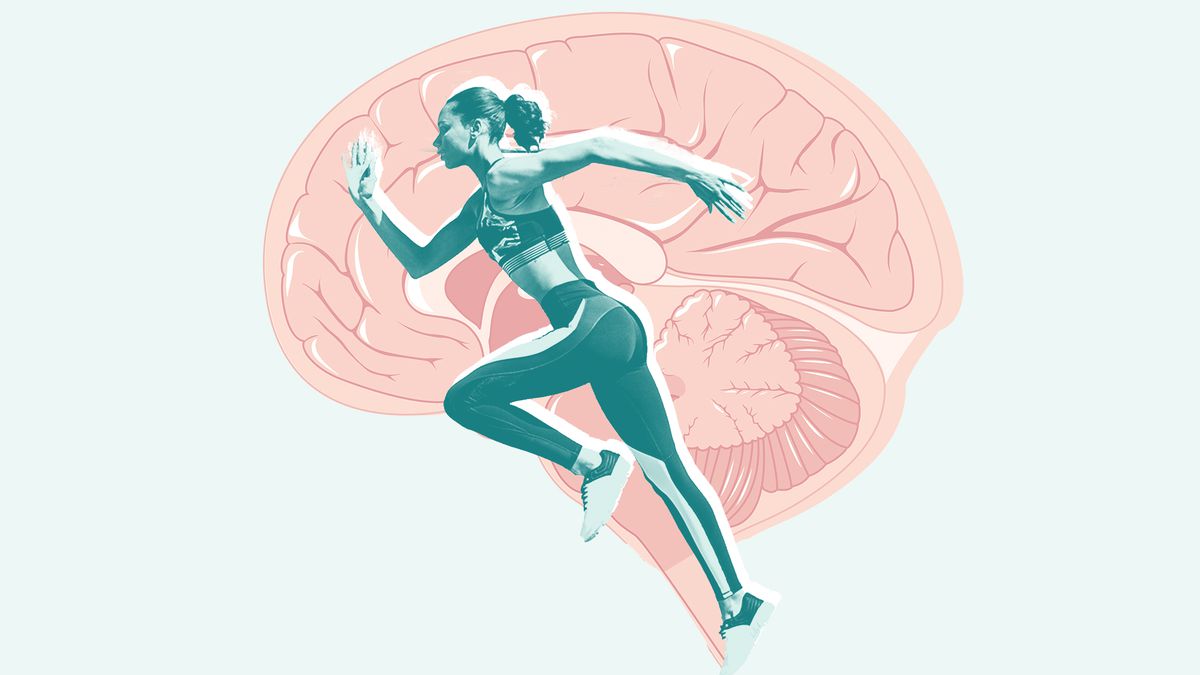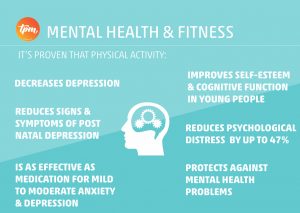The Benefits of Physical Exercise on Mental Health
The Benefits of Physical Exercise on Mental Health
Introduction
Nearly 1 in 5 people in the U.S. today suffer from mental health illnesses, such as depression or anxiety. Most turn to prescription medication to help with their symptoms, however recent studies show that exercise can help improve these symptoms in a natural way. Physical Exercise has been proven to show positive effects on mental health disorders. It is important to find alternate ways to improve one's mental health in a more natural way, rather than using a medication that most likely always has a side effect. Exercise is beneficial in helping improve not only your physical health, but also your mental health as well

Benefits of Exercise
- Helps manage weight control
- Reduces risk of Heart Disease
- Improves mental health
- Strengthens your bones and muscles
- Improves sleep quality
- Aerobic: Aerobic exercise has shown to be the more effective exercise in reducing symptoms of depression or anxiety. It is any kind of cardiovascular training, and is defined as any exercise "with oxygen"
What Activities Should I Participate in to Improve my Mental Health?
- Walking
- Running
- Hiking
- Swimming
- Yoga
Studies have shown...
Recent research conducted has shown that physical exercise, specifically aerobic (cardiovascular), improved the symptoms of mental illness. Physical exercise improves the overall quality of life in a person mentally and physically. According to research, the brain exerts signals similar to antidepressants during exercise. Exercising 3-5 days a week, whether its moderate or vigorous, can show improvement in the symptoms of depression and anxiety.

Practical Implications
Practical implications include encouraging exercise as a form of treatment for mental illness disorders as opposed to prescription medications depending on the severity. Prescribing patients with depression or anxiety exercise along with medication can also help to reduce patients symptoms as they would both work together.
Resourceful Links
SAMHSA's Mental Health hotline: 1-800-HELP (4357)
About the Author
Lindsey McGrath is a student at Westfield State University majoring in Movement Science with a concentration in Sports Medicine. After graduating her plan is to attend nursing school to become a Registered Nurse. Her interest in this topic stems from her belief that Mental Health needs to be brought into the light. She can be contacted at lmcgrath4393@gmail.com
References
RM;, S. (n.d.). Depression and Anxiety Disorders: Benefits of Exercise, Yoga, and Meditation. Retrieved October 22, 2020, from https://pubmed.ncbi.nlm.nih.gov/31083878/
Blumenthal JA, Babyak MA, Doraiswamy PM, Watkins L, Hoffman BM, Barbour KA, Herman S, Craighead WE, Brosse AL, Waugh R, Hinderliter A, Sherwood A. Exercise and pharmacotherapy in the treatment of major depressive disorder. Psychosom Med. 2007 Sep-Oct;69(7):587-96. doi: 10.1097/PSY.0b013e318148c19a. Epub 2007 Sep 10. PMID: 17846259; PMCID: PMC2702700.
Sarris J, O'Neil A, Coulson CE, Schweitzer I, Berk M. Lifestyle medicine for depression. BMC Psychiatry. 2014 Apr 10;14:107. doi: 10.1186/1471-244X-14-107. PMID: 24721040; PMCID: PMC3998225.
Weinstein A, Maayan G, Weinstein Y. A study on the relationship between compulsive exercise, depression and anxiety. J Behav Addict. 2015 Dec;4(4):315-8. doi: 10.1556/2006.4.2015.034. PMID: 26690627; PMCID: PMC4712766.


Comments
Post a Comment